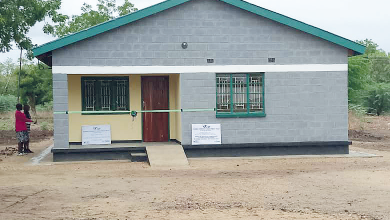64% of MPs fail to return to Parliament
From the 2019-2025 cohort of Parliament, constituents used their ballots to retain just 36 percent or 70 out of 193 legislators during the September 16 General Election, The Nation has established.
The retained members of Parliament (MPs) comprise 15 women and 55 men.
In terms of party affiliation, The Nation analysis found that in 2019
Malawi Congress Party (MCP) secured 55 seats and 30 of those have reclaimed their seats in the now 229- seat Parliament while Democratic Progressive Party (DPP) had 62 lawmakers with 34 of them back in the National Assembly.
United Democratic Front (UDF) secured 10 seats in 2019, but only three have made it back while only five out of 55 MPs that won as independent in 2019 have kept their seats on the same ticket.
The high turnover rates for legislators in Malawi appear to follow a pattern familiar across Africa.
In a February 2022 study titled ‘Turnover and accountability in Africa’s Parliaments’, researchers Jeremy Bowles and Benjamin Marx said findings from parliamentary races across 12 African countries with identical electoral systems showed that MPs face high turnover rates with an average 57 percent of incumbents seeking re-election and an average 32 percent re-elected overall.
The report said re-election rates were low across the entire sample, ranging from 25 percent in Sierra Leone to 43 percent in Uganda.

Reads the study report: “Conditional on the same two candidates running consecutively, a simulation-based
bounding exercise suggests that the incumbent’s re-election chances are as good as random. Overall, parliamentary careers in our data appear short and precarious, with just five percent of MPs serving three consecutive terms or more.
“These high rates of turnover and the poor electoral performance of incumbents do not, by themselves, establish the existence of a negative electoral equilibrium. To establish that voters’ pessimistic beliefs increase turnover rates and limit accountability, our analysis proceeds in two parts. In the first part, we examine
a set of empirical consequences consistent with accountability traps when voters struggle to attribute distributive benefits to their representatives.”
Reacting to the numbers in Malawi’s parliamentary turnover, political expert Enerst Thindwa said the development is due to a gap in knowledge between lawmakers and constituents.
He observed that people generally expect lawmakers to deliver development when this is not even one of their duties.
Said Thindwa: “MPs themselves promise [during the campaign] that they will implement development projects when that is not what they are supposed to do.”
But in a separate interview, Cent re for Mu l t i par t y Democracy executive director Boniface Chibwana said the statistics show that Malawians desire change.
He said: “The expectations from the people are too high so much that the newly-elected members of Parliament should learn from what has happened. Retention rate of course comes from the political party that one has contested on.”
National Advocacy Platform cha i rper son Benedi c to Kondowe concurred with Chibwana, saying the sharp drop in the number of returning MPs signals a strong public appetite for change and accountability.
He said: “This outcome
reflects growing political cons c iousne s s among Malawians, who are no longer voting along partisan loyalty alone, but increasingly on performance and integrity.
“However, this shift also presents a governance and institutional continuity challenge. With such high turnover, Parliament risks losing experienced legislators who understand complex pol i c y and ov e r s ig ht processes.”
The 2025-2030 cohort of Parliament is currently undergoing orientation at Bingu International Convention Centre in Lilongwe.





